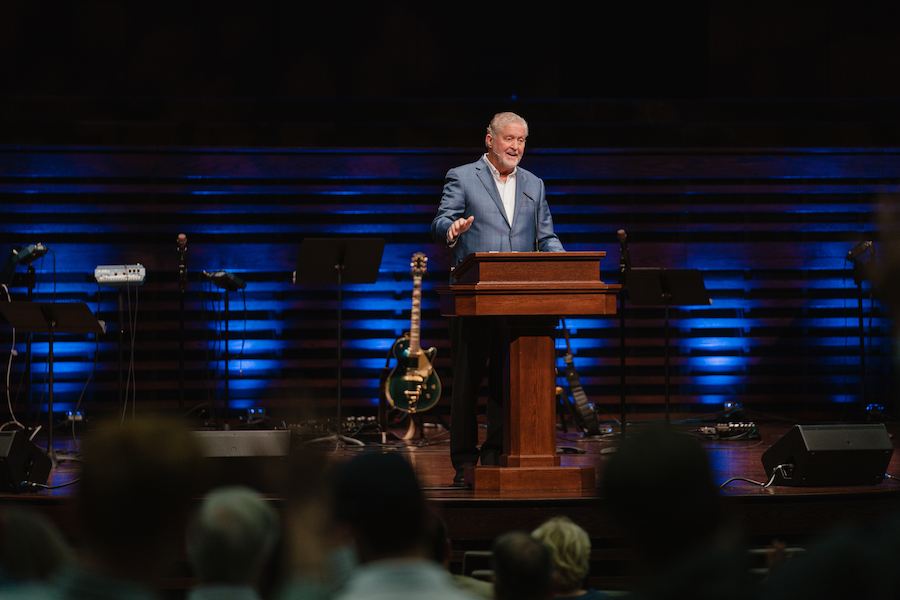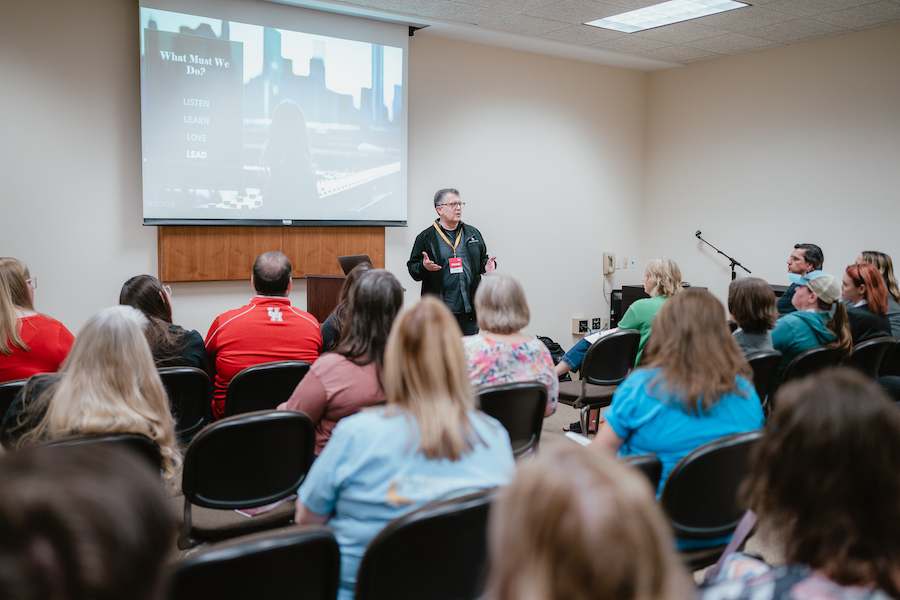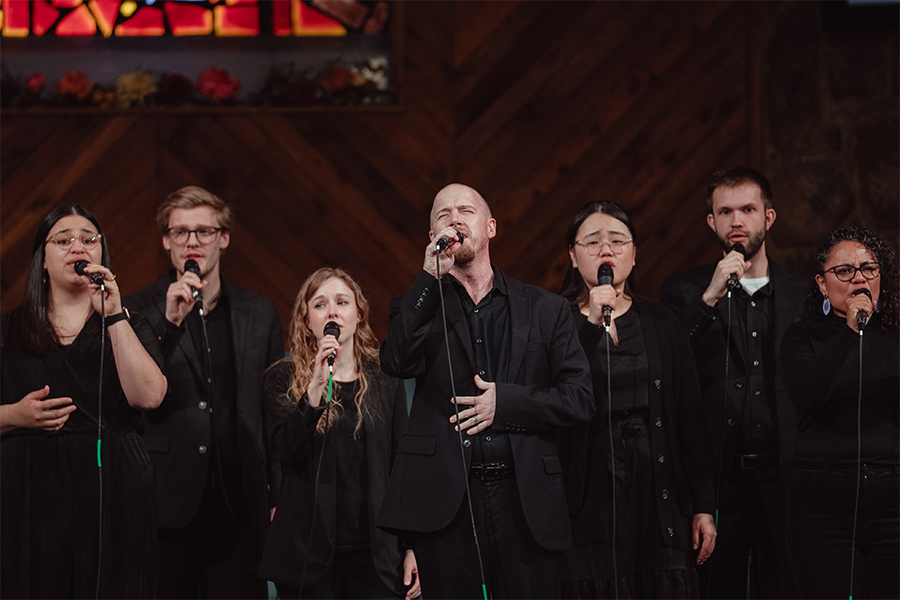Registration is open for Southwestern, TBC winter courses

Registration is open for one-week winter courses offered at Southwestern Baptist Theological Seminary and Texas Baptist College (TBC) this December and January. Through the four sessions offered, which begin Dec. 5, students can earn three credit hours for each course.
The winter courses offered at Southwestern include Christian Leadership, Contemporary Evangelism, Introduction to Missiology, Mentorship, Disciple-Making, Christian Ethics, Doctrine of Trinity in New Testament, Jeremiah, Church Ministry Theology and Practice, Introduction to Expository Preaching and Doctrine of Trinity in New Testament. The TBC winter courses offered are Old Testament I, Old Testament II, Doctrine of Trinity, The Medieval Mind, and Introduction to Christian Ethics.
Michael S. Wilder, interim vice president for strategic and academic initiatives, associate provost of innovative learning, and professor of educational ministries, will be teaching Christian Leadership. The course will “be an opportunity to reinforce the biblical, theological, and practical foundations for Christian leadership with each student and help them better understand their identity as a leader, their leadership community, their mission, and the needed competencies to lead others,” he said.
Wilder notes the importance of the course as “each Great Commission minister must lead God’s people well and that demands a right understanding of identity in Christ, shared leadership, Gospel-driven mission, and the authority of God’s Word.” He said he desires that each student develops “a deep conviction that ministry leadership is, first and foremost, Christ-centered followership marked by submission, dependence, humble service and shepherding.”
Juan R. Sánchez, associate professor of theology, will be teaching Introduction to Expository Preaching.
Sanchez, who also serves as the senior pastor of High Pointe Baptist Church in Austin, Texas, described the importance of the course, noting that “in God’s providence, He has chosen to save the lost through the faithful preaching of his Word. For that reason, the revelation of the Father about Jesus as the Christ serves as the foundation of the church.”
“Preaching is central to God’s work,” he added. “Therefore, we must understand how to faithfully fulfill this ministry.”
Ken Magnuson, professor of Christian ethics and executive director of the Evangelical Theological Society, will be teaching Christian Ethics. Magnuson explained he enjoys teaching the course “because it deals with how we apply Jesus’s teaching that we are to love God fully and love our neighbor as ourselves” as based on Jesus’s words in Matt. 22:37-40 “or what it means to walk in a manner worthy of the Lord, fully pleasing to Him, bearing fruit in every good work” as Paul wrote in his letter to the Colossians.
“God reveals in Scripture the profound importance of how we live our lives, so we ought to take great care to study these things and do them” as based on Matthew 7:24, Magnuson said. “This is an important class to take because we will consider how to understand the important moral issues of our day in light of God’s Word. Students who take this class will develop a better understanding of biblical ethics and contemporary issues.”
Matt Queen, associate dean of the Roy J. Fish School of Evangelism and Missions, professor of evangelism, and L.R. Scarborough Chair of Evangelism (“Chair of Fire”), will be teaching Contemporary Evangelism during the winter term. Queen said it is his “favorite class to teach at Southwestern.” He explained that in the class, “students learn how to evangelize, mobilize their church in evangelism, contextualize the Gospel in conversations, and articulate their philosophy of evangelism.”
Queen, who will become interim provost and vice president for academic administration on Jan. 1, noted Southwestern “is the first seminary in the world to employ an evangelism professor.” Evangelism has been taught at Southwestern since the seminary’s founding in 1908. “Students who take this class will gain a biblical philosophy and practice of personal and corporate evangelism to advance Great Commission disciple-making in the twenty-first century,” said Queen.
J. Daniel Hays, senior professor of Old Testament, will be teaching a class on Jeremiah, a book he describes as being “filled with fascinating biographical information on Jeremiah and the difficult persecution he faced.”
Hays said as Jeremiah was “the prophet who clearly prophesied the coming New Covenant,” the book “is critical to understanding the link and transition from the Old Testament to the New Testament. Not only is this book filled with critical theology, but it also provides many, many practical applications for Christians, especially for those going into ministry.”
Benjamin M. Skaug, provost and vice president for academic administration and associate professor of theology, will be teaching Old Testament I, which is a “Christian survey from Genesis through Esther. Students will first learn the Old Testament in its original context and also how God’s foundational promises seen in the Pentateuch will grow and develop throughout the Old Testament.”
Skaug added that students will “see how they are ultimately fulfilled in the person and work of Jesus Christ.”
Michael Wilkinson, associate professor of theology at TBC, will be teaching The Medieval Mind in January. He said this class is important because “it brings several benefits to the student, both in terms of theology and the history of ideas. It allows us to recover some key developments in Christian metaphysics, the doctrine of the Trinity, the incarnation and atonement, and the relationship of faith and reason.”
Wilkinson added the course also, “helps us to understand better the 16th Century Reformation movements as we explore developments in medieval thought that confused key doctrines that many reformers sought to recover” while also allowing students “to see a tradition of deep spirituality- the soul’s quest to know and love God, and the development of Christian virtue.”
Daniel Darling, director of the Land Center for Cultural Engagement and assistant professor of faith and culture, said the Introduction to Christian Ethics course he is teaching in January “is vital for students to have a biblical framework for making important ethical decisions and for developing the kind of virtue that helps them live as faithful Christian witnesses in a confusing world.”
Jonathan N. Atkinson, assistant professor of biblical studies, will be teaching Old Testament II – An Introduction to the Prophetic and Wisdom Literature of the Old Testament.
“As Christians we confess that all Scripture is breathed out by God and profitable for training in righteousness,” Atkinson said. “And yet, as Christians, we’re often far more familiar with and comfortable with the New Testament. This class will deepen our understanding of Scripture to take in more of God’s Word—which is more necessary than our daily bread—to know God more and be trained for righteousness.”
He explained that this class will help students “learn the contents of the prophetic and wisdom books, their main message, their major themes, and also how each of the books relate to each other to contribute to a unified Old Testament theology a unified Old Testament message. We will point towards how these themes crescendo and culminate in the New Testament, in the life and work of Jesus Christ.” Atkinson said the class will help students understand how the “Old Testament points to Christ and how the Old and New Testament contain one unified message.”
According to Registrar Karen Gilstrap, “current or newly accepted students can register for these classes up until the first day of classes.” All the classes will be offered in person as well as online, although students choosing the online option will need to be able to watch the class “live” at the same time the class is taking place.
The winter term begins December 5.
Students can find the full winter term course schedule, and registration information, here.



